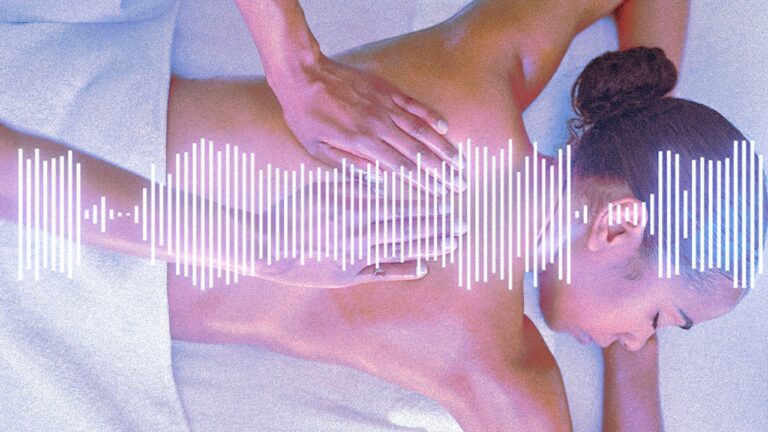
[ad_1]
Steve tells me that he and David were first moved to make what he calls “healing music” back in the 1980s when they would go backpacking in the mountains and meditate. “We were inspired to record the sounds of nature there and combine them with relaxing music,” he says. “There is a sense of deep peace that comes from spending time in nature. It turns out that listening to nature sounds along with soothing music can also affect us in the same way.”
If you’ve been to a spa, there’s a decent chance you’ve heard one of the Gordon brothers’ more popular albums, Soothing Sanctuary or Garden of Serenity. Both have only two tracks, each a half hour long, but what they lack in quantity, they make up for in shakuhachi flute, temple bells, and nature sounds. “Nature sounds have a very powerful effect on the body and mind,” Steve says. His claim aligns with studies showing that naturalistic sounds can impact how we respond to stress.
Although he utilizes many similar instruments, spa music composer Fridrik Karlsson, whose most popular ditty is called “Chillout Zone,” seems less inclined to incorporate whale vocalizations and rustling leaves into his songs, leaning more heavily into synth pads and rhythmic instruments like drums (the latter, Steve prefers to avoid).
“One critical element is the tempo,” Karlsson says. “The closer to 60 beats per minute, the better, as tempo works on a subconscious level and your heart rate will adapt to the tempo present even if you are not listening.” Indeed, a 2010 study by India’s BMS College of Engineering found that subjects felt less stress and more physical relaxation when listening to music with approximately 60 beats per minute, which is on the lower end of the normal resting human heart rate, according to the Mayo Clinic.
Unlike my wackadoo self, most people are not intentionally listening to the music playing during their spa treatments; they’re there for the muscle-kneading and skin-polishing. But when spa directors select their facilities’ music, many are very intentional in their selections.
“Because music can have profound effects on the nervous system and can reduce the compounding aspects of stress, we use music as a tool to support emotional and physical health,” says Tammy Fender, aesthetician and founder of Tammy Fender Holistic Skin Care and two eponymous spas in Palm Beach County, Florida. In fact, there are as many spa music tracks as there are studies on music’s effect on the autonomous nervous system. All of that research supports the notion that certain types and tempos of music can have a measurable impact on emotions and the physical manifestations of stress. “When the whole being is guided into a relaxed state, our treatments are more effective,” says Fender.
[ad_2]